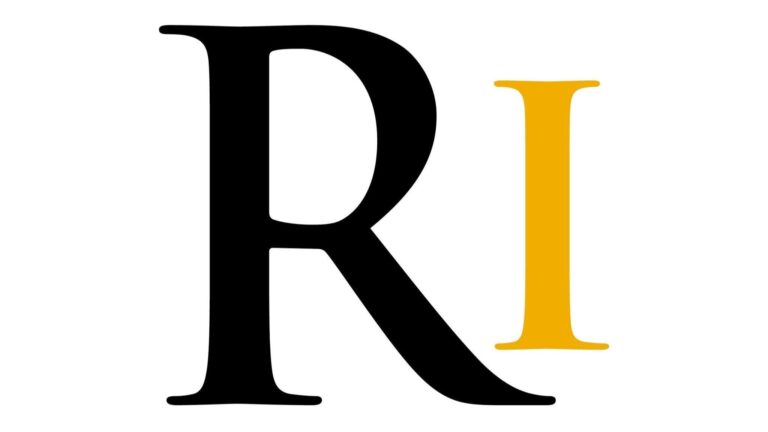Overall religiosity is in steep decline in the West and in fact has been since the end of the Second World War. A great number of factors are contributing to this trend, but what is more relevant is the consequences of it. Thousands of years of socio-cultural evolution has made us instinctively inhabit religious thinking patterns, and where actual church dogmas fail to be appealing enough, people start to look elsewhere.
On July 30 in 1956 the United States officially adopted In God We Trust as its motto, replacing the old E pluribus unum (‘Out of many, one’) which referred to the original confederate structure of the nation. The 1956 motto is still the official one in the US, proudly displayed on public buildings, official documents and every banknote in circulation. But does it still stand true?
In the mid-1950s, the share of US adults who regarded religion as somewhat important part of their lives was well above 70 per cent. In 2015, it was down to 52 per cent. Similarly, weekly attendance at church services dropped from 49 per cent to 29 per cent in 2020. The trend is almost the same in Europe, with a minor delay between the two halves of the continent, but the former Warsaw Pact countries are quickly catching up to their western counterparts in this regard as well.

Out of 34 countries in which religiosity was measured by the Pew Research Center in 2018, Romania scored the highest at the overall combined index, with 55 per cent of its adults falling into the “highly religious“ category, while Estonia scored the lowest with only 7 per cent. If we look at the church attendance, Poland takes the lead with 61 per cent of the adults surveyed attending service at least monthly and Finland is the last with 10 per cent.
It is clear that former communist bloc countries have remained more religious than Western Europe in general, but it is not a rule
Czechia, for instance, scored 32nd on the overall combined index, with only 7 per cent saying religion is very important to them. The situation in Hungary is not much better either, as only 17 per cent of those surveyed said they attend church services regularly. So even though the Hungarian state’s explicitly Christian character was included in the Constitution of 2011, the religiously worded preamble seems to mean nothing more than the United States’ motto these days. Now, what political implications the decline of religiosity could have in our world, and especially in the West? Well, apart from an arguable deterioration of common morality and the fundamental values the West inherited from its Christian past, there is a more subtle consequence. Namely, the new socio-cultural norm that is coming to replace Western religious principles: progressivism. Let me explain.
Different forms of religions were present for tens of thousands of years, and the very essence of them—the differentiation between the sacred and profane, to use the Eliadean dialectic—not only shaped every other aspect of our cultural and social development throughout history, but has also become an irreplaceable part of our collective consciousness. It provides a moral and logical framework for our understanding of the universe and our everyday surroundings. We need both labels, the sacred and the profane, to navigate through the world.
based on the common belief and understanding of hierophanies (manifestations of the transcendent in our ordinary world). ake away that, the belief in a higher, objective truth, and people would automatically search for something to fill the void it’s leaving behind. Ever wondered why “woke” culture operates so similarly to a church? Now you have your answer. It is not unusual to read authors and journalist drawing parallels between orthodox religious dogmas and social justice activism. As American journalist, Rod Dreher, pointed out in his latest book Live Not by Lies, ‘communism answered an essentially religious longing in the souls of restless young intellectuals. Progressivism in all its forms appeals to the same desire in intelligent young people today – both secular and those within churches who are alienated from authoritative ecclesial traditions. This is why Christians today must understand that, fundamentally, they aren’t resisting a different politics but rather what is effectively a rival religion.’[1]
Until just a century ago, Christianity and its dogmas perfectly embodied this network of social connections
Apart from pondering to an unconscious need of religiosity in a post-religious world, progressivism offers a very similar framework for navigating our societies as churches did in their prime. Woke ideology does not offer political views, but dogmas. It does not engage in debate, it does not encourage the constant re-evaluation of its principles, but declares them as objective truths – much like the philosophical pillars of different faiths, which are not invented by man but revealed instead by a higher power. Dogmas do not need to defended; one either believes them and is deemed morally good, or rejects them at the price of being accused of wrongdoing. Questioning these fundamental principles, therefore, is in itself a heresy. And heretics deserve to be burned at the proverbial stake of cancel culture.
Yes, at one part or the other, inquisition was part of every major religion’s history, and this is no different. One’s belief that they are ultimately right not only gives them permission to persecute those who oppose them, but makes it an outright duty. These social justice jihadists are ready to take on everyone whose opinion might differ with such a zeal that could only come from true religious certainty. Apostates have it the worst of course, including those who do not accept the intersectional aspect of progressivism, like the British author J. K. Rowling, who stepped up as a champion of feminist and anti-racist causes, but could not stomach the transgender movement’s claims, so the mob turned on her. You can not cherry pick from the Ten Commandments, can you? They come as a full package. But the comparison does not end there. Different churches, for instance, use plenty of symbols (special clothing, objects, gestures and so on) which are meant to elevate their holidays and rituals from our everyday, profane reality and put them onto the plane of the transcendent, from where the sacred truth shines through to us. They serve as a bridge between the sacred and profane, and to mark those who belong in the covenant of the divine truth.
This is all part of the progressive left’s toolbox, as well. LMBT and BLM flags have become commonplace in western urban centres, the Pride and other annual marches serve as their most sacred holidays, which also come with specific clothing and rite-like customs, all topped with literal saint-like figures, the martyrs of progressivism. People actually hold pilgrimages and are baptised at the Minneapolis corner where George Floyd died, and some even tell they witness miracles during their praying sessions. It is clear that this is not a political movement anymore.
Religions’ ultimate goal is to offer salvation to their members. We cannot be certain what is waiting on the other side for a devout Christian, but we know that there is no reward for those who sacrifice their lives for the false, material prophecies of social justice. As for the short time we spend in this reality, we might want to consider returning to Christianity instead, proven by the hardships of two millennia because progressivism will never stop progressing – into the precipice in the end.
[1] DREHER, Rod: Live Not by Lies: A Manual for Christian Dissidents. Sentinel, New York, 2020, Kindle ed., loc. 785.








